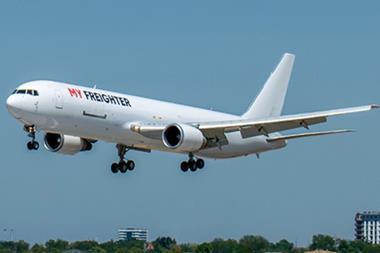A Dutch court has blocked moves to limit the number of flights allowed at Schiphol Airport following a legal challenge by IATA and a group of airlines.
The Dutch government had been hoping to reduce Schiphol’s capacity from 500,000 to 460,000 flight annual movements as part of efforts to reduce noise and pollution.
The government had the ultimate goal of reducing flight movements to 440,000 by 2024.
However, a Haarlem court ruled that the government had not been through the proper process before making a decision.
In order to cut flight numbers, the state must identify various measures that can reduce noise pollution, consult all interested parties, and a reduction in the number of aircraft movements is only allowed if it is clear that other measures to limit noise pollution are insufficient.
The ruling only applies to the temporary reduction due to take place in the winter and the government could appeal the decision.
IATA director general Willie Walsh said: “We welcome the judge’s decision. This case has been about upholding the law and international obligations. The judge has understood that the Dutch government violated its obligations in shortcutting processes that would bring scrutiny to its desire to cut flight numbers at Schiphol.
"Winning this vital reprieve is good news for Schiphol’s passengers, Dutch businesses, the Dutch economy and airlines. But the job is not done. The threat of flight cuts at Schiphol remains very real and is still the stated policy of the government.
"Schiphol airport themselves yesterday announced night flight cuts without consultation. Airlines understand the importance of resolving issues such as noise. The Balanced Approach is the correct EU and global legally-enshrined process for managing noise impacts. It has helped airports around the world successfully address this issue.”
IATA said that attention now moves to the consultation on limiting Schiphol on a permanent basis to 440,000 flights from 2024 onwards.
"We believe that the Dutch state is again at risk of not following the Balanced Approach by proceeding from the basis that flight numbers will be reduced to 440,000, rather than starting with measuring noise and defining a noise objective," IATA said.
"Any flight cuts can only be a last resort to achieve this noise objective, not the starting point. We believe that the ruling today gives a strong indication that the State must follow the proper process and analyse all options."
Earlier this week, Schiphol outlined plans to ban take-offs and landings at night and all private jet operations as part of measures to reduce noise pollution at the Dutch hub.
Schiphol Airport is also dropping plans for an additional runway and will tighten rules to limit operations by the noisiest aircraft under proposals for implementation by 2025-26.
It plans to cut 10,000 night flights a year by no longer allowing aircraft to take off between 00:00 and 06:00 or land between 00:00 and 05:00. It also plans to limit the re-allocation of flights to end-of-night or early morning "as much as possible”.
While the tighter rules will apply to airfreight operations, Schiphol acknowledges cargo flights “are currently struggling to keep their slots” at the airport due to international slot regulations.
As a result, it plans to "safeguard cargo” by allocating 2.5% of the available take-off and landing slots for these operations.
https://www.aircargonews.net/cargo-airport/airlines-launch-legal-challenge-to-schiphol-flight-limits/















